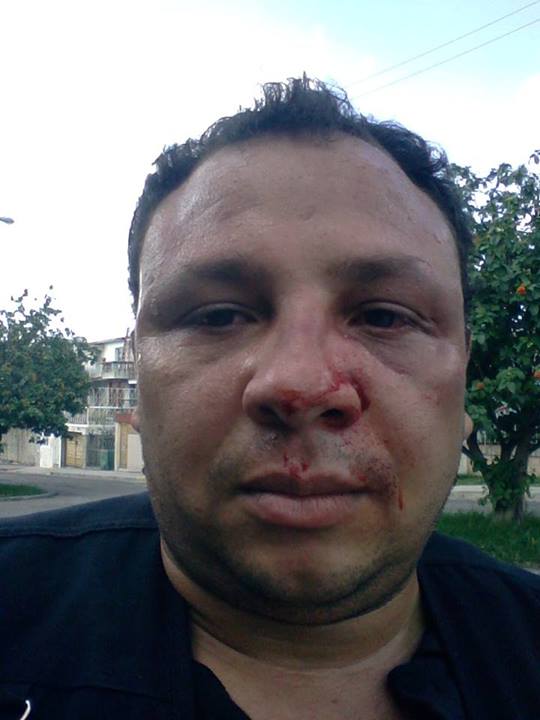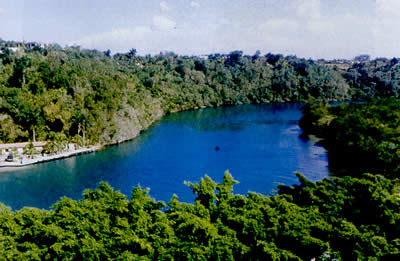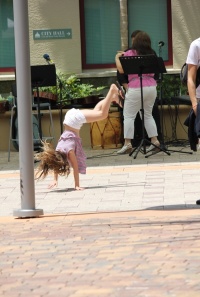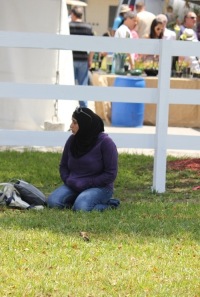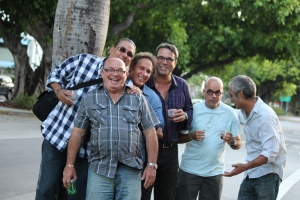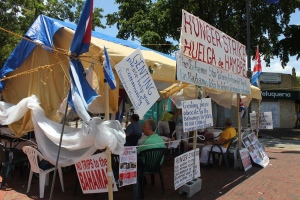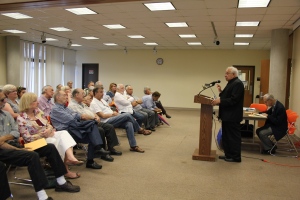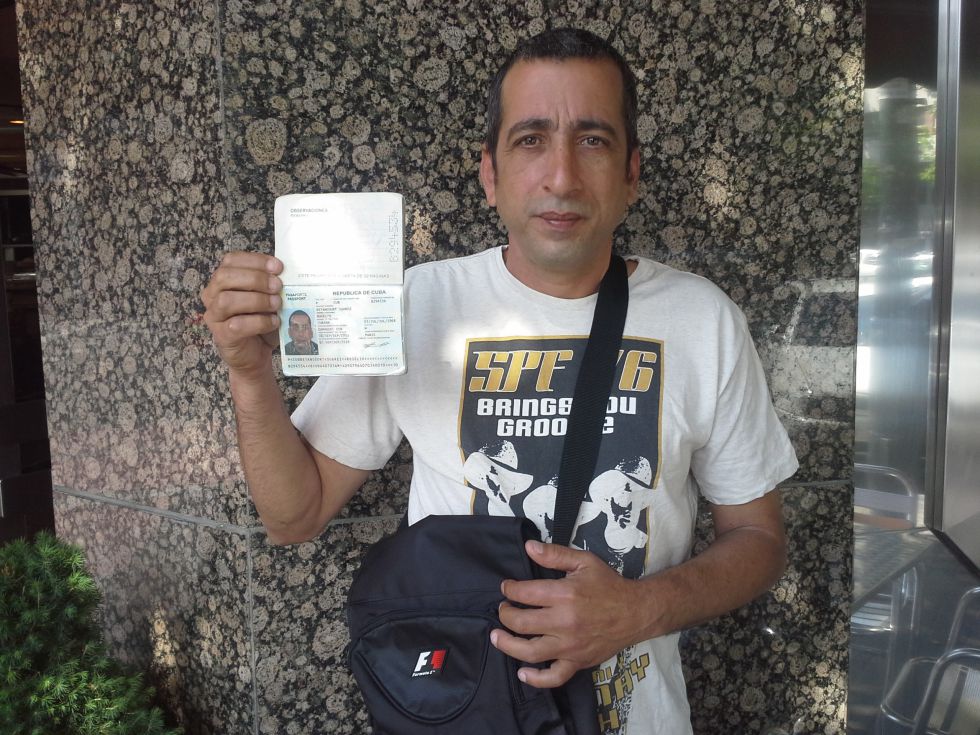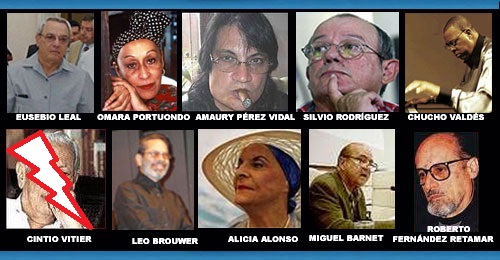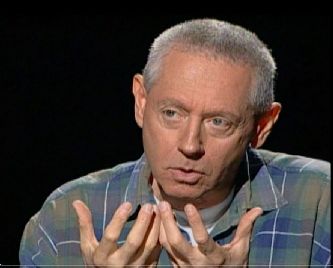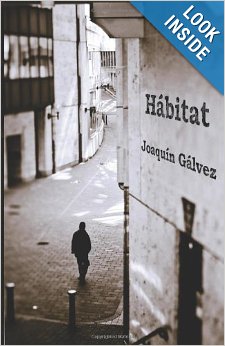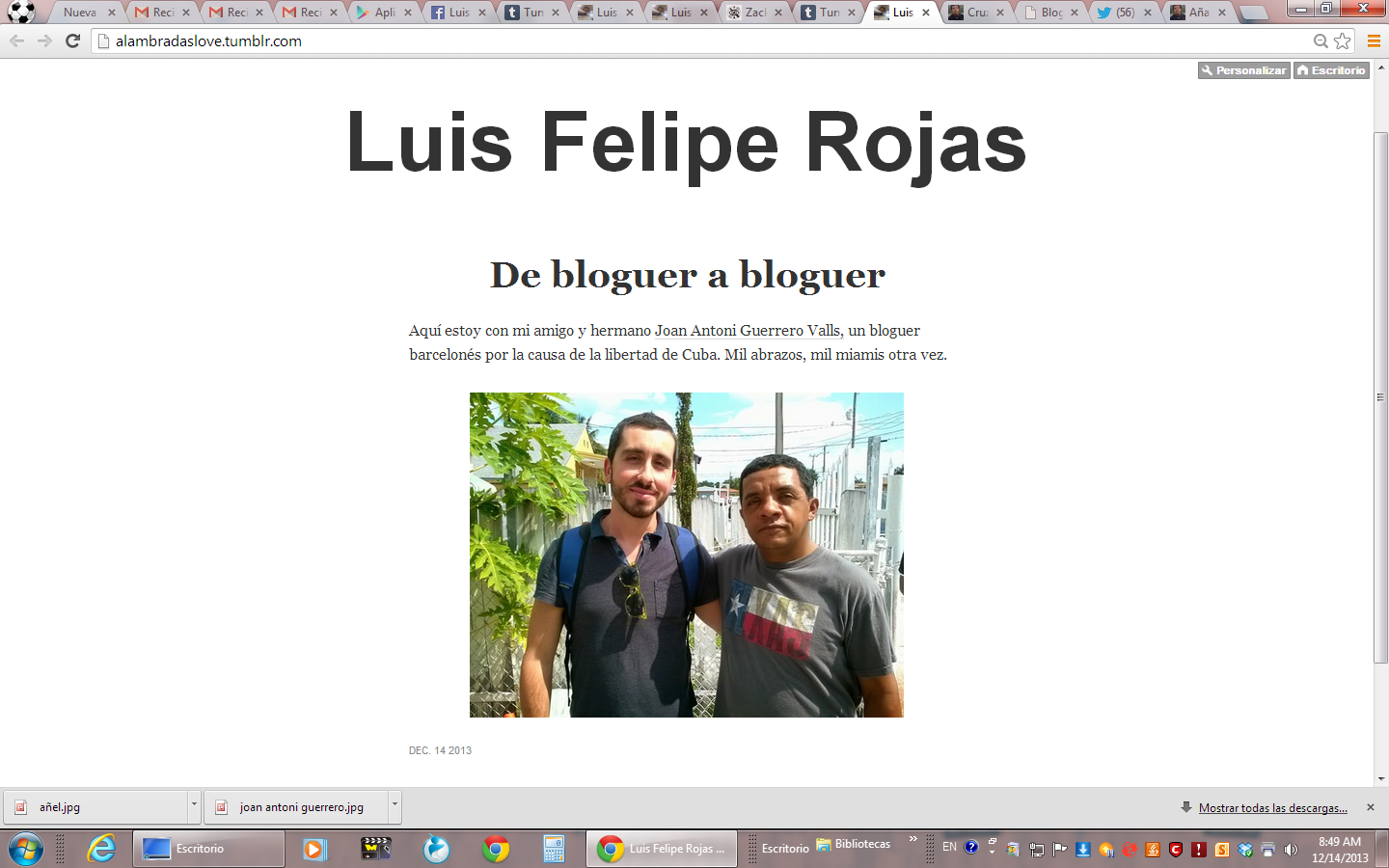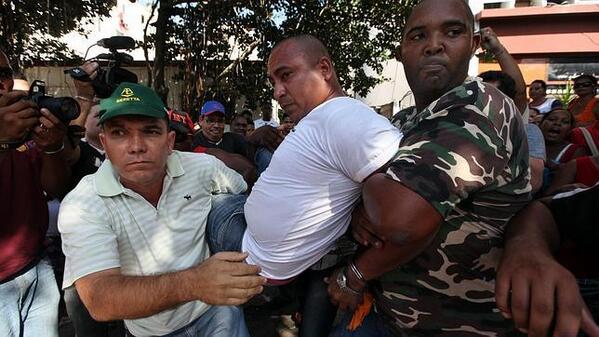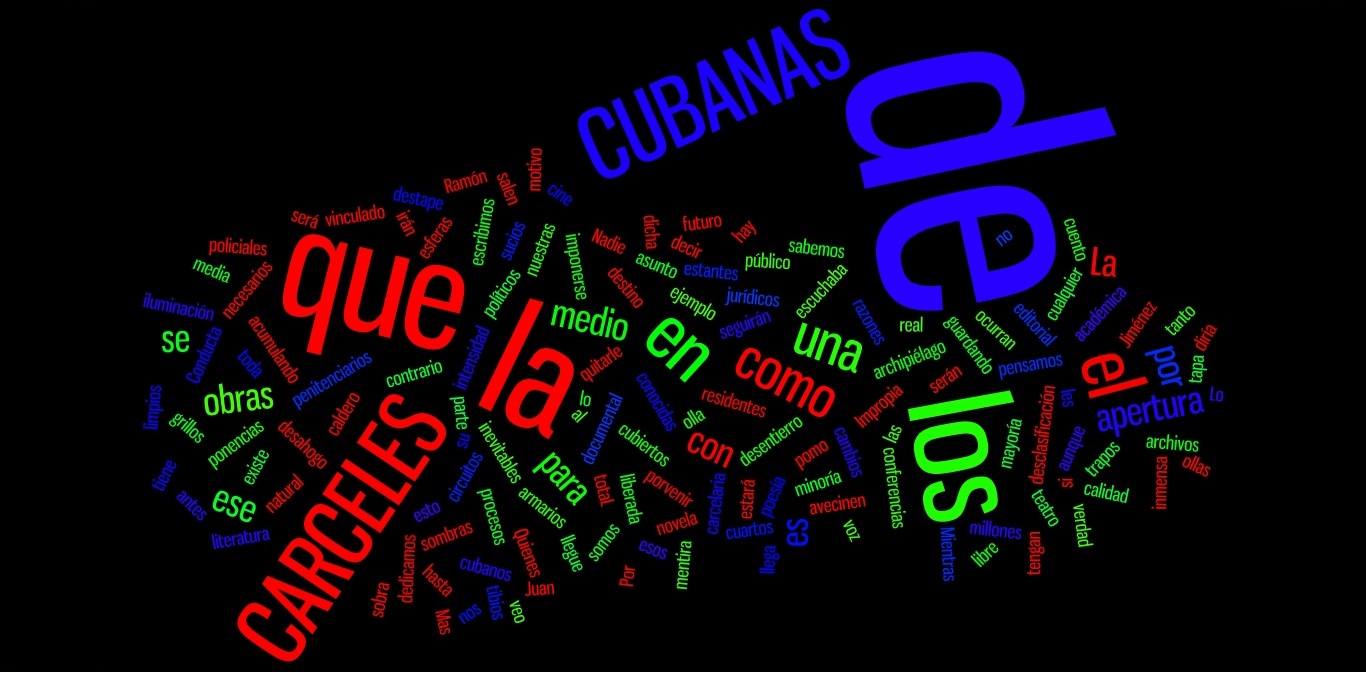
Newspaper accounts written by different independent groups of the private sector in Cuba do not supply the images that emerge from the histories, essays and poems produced by the experience of being imprisoned under the Castro dictatorship in the 54 years that it has been in power. From José Martí to Carlos Montenegro; from Pablo de la Torriente Brau to Ernesto Díaz and Huber Matos, there exists a testimonial chain that’s hard to break.
Rafael Saumell provides continuity to Cuba’s imprisonment history and narrates the process in an essay which maps out what it means to be behind bars, inside the moats and the horrors of imprisonment in the island, seen through the eyes of extraordinary authors who wrote about their own personal experiences. From Manzano, Martí, De la Torriente, Montenegro, Díaz…to the present day.
How much of your own experience is there in “La cárcel letrada” (Betania, 2013), how much of your own frayed skin can we find in the book and what did you get out of writing it?
There are several references in the book’s introduction as to how much of me there is in La cárcel letrada. If you read through those first few pages you will find that the main idea was to intellectualize my experience as a political prisoner within the context of national culture: who preceded me, how they expressed their experiences, what they said and what they denounced. I chose authors and writings that I felt were meaningful, considering that they were representative of different historical eras, several political regimes and varied literary styles.
I did not exclude the common prisoner because I was a witness to it in the prisons of Guanajay and in Combinado del Este. I did not live together with them, but I met a lot of inmates who were part of that sector of the prison system. In that aspect, I followed the examples offered by Carlos Montenegro and Pablo de la Torriente Brau. continue reading
At the same time, I researched, read and analyzed their writings and learned many concepts related to certain literary theories and philosophical principles. I adapted them to the study of each work and author while maintaining a dialogue with my ancestors in slavery and imprisonment. In this fashion, I tried to carry out a catharsis using the academic essay as a tool and linked the continuity of our political tragedy from the colonial era, the time of the Cuban Republic and the period after 1959.
In addition to being locked up, driven into exile and death, the Castro dictatorship has produced a sub-genre which has been denominated ‘prison literature’. Do you think it will transcend as a style and why?
Prison literature (poetry, story, novel, theater, film, documentary if we refer to Conducta Impropia and Nadie escuchaba, for example), exists although it does not reach the majority of its natural audience (the Cubans who reside in the island) for reasons we all know. Those of us who write about these matters know we are writing for the future, that is, any fate that our work will meet will be tied to the intensity and the quality of the political changes that may come.
Meanwhile, in the areas of publishing and academia, lectures and conference circles we are part of the “immense minority” as Juan Ramón Jimenez would say. For that reason, the work we do will continue to amass and gather dust in the bookshelves until its time comes. I see it as a sort of unearthing, an illumination of shadows, a hullabaloo and the airing of clean and dirty laundry coming out of the closet, every voice free and liberated.
The declassification and the opening of police files, the judicial archives and prison files will be necessary and inevitable. Moreover, for those events to take place, we first have to uncork the bottle, there has to be a real opening …otherwise the pot and pan will be half covered, only lukewarm. A half truth is a total lie.
What inspires you to keep writing?
What inspires me are: the literary vocation I discovered in my youth; the personal, mental and physiological need that forces me to read a private journal, or sit at a computer in order to thread the ideas that emanate from me; the opinions that I want to share with others; the emotional zeal that I have for literature in general and from which I continue and will continue to learn. I write because I have no other choice but to obey my nature and do what it dictates to me.
Besides, it does not compel me to commit crimes, unless someone ironically says about my work: “he committed a triple crime by writing an essay, a story and a novel.” Since May 9, 1988 when I left (and I did not abandon) my country, I have all the freedom in the world to write, without fear of censure or fear from a reader who could report and denounce my “counter-revolutionary” writings to the police.
I do not depend on any business or institutional subsidy. I am financially independent and therefore I have earned my intellectual freedom to write what I want and as I see fit. I am solely responsible for the failures or recognitions of my profession.
What is your connection with Cuba, with Cubans, with the current Cuban literature?
I still have very good contact with Cubans and Cuban literature writers in the four corners of the planet. I read Tyrians and Trojans alike; I don’t discriminate against authors because they have political beliefs different from mine. If I took to read only those who agree with my point of view, I would probably only read what I myself wrote and that, of course, is narcissism, egocentricity; it is anti-democratic and unjust, naturally.
I read other Cuban authors because it is my vocation, my duty and because real charity begins at home. Furthermore, as far as arts and literature, we are at a much higher level and quality of life, we are so much more advanced than the country governed by the “revolutionary government.”
Any advance on what you are cooking up for the future?
As far as any advances, here is what I am planning: a play, a collection of exchange letters and memoires of the entertainment world when I worked as scriptwriter for radio and T.V. programs. Unless my health fails, I will be very busy with those projects, in addition to the education of my children and grandchildren, the unending nurturing of my relationship with my wife, with my family, with my friends. Of minor importance is the fact that the economic base for those plans is rooted in my job as Spanish Professor in a Texan university: “I have earned my keep/let there be poetry.”
25 November 2013
